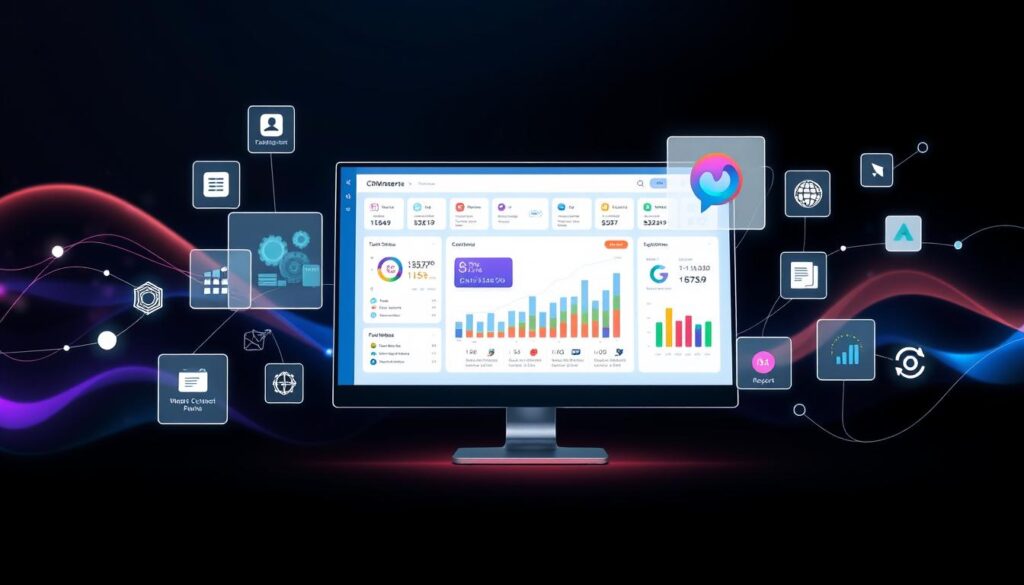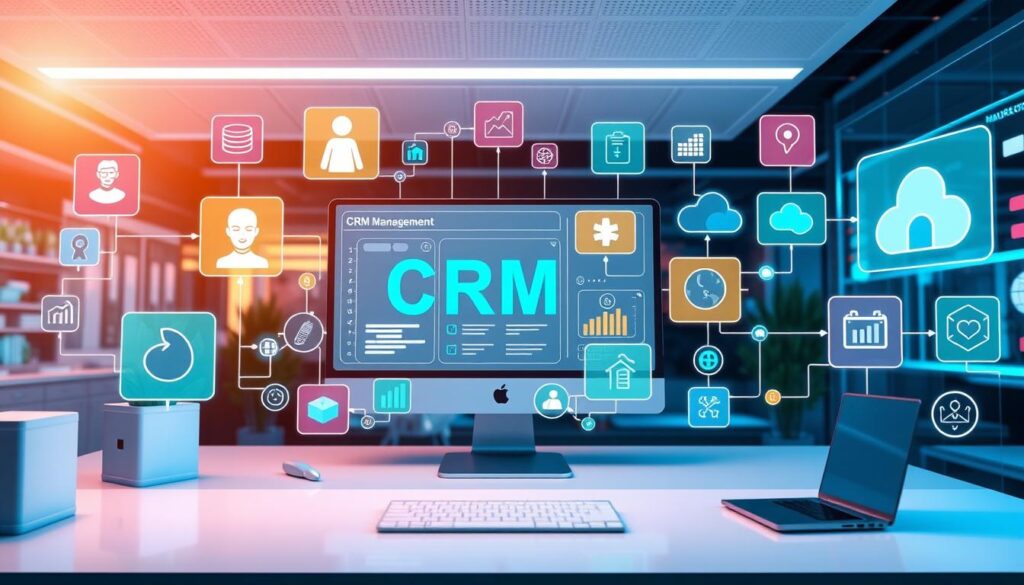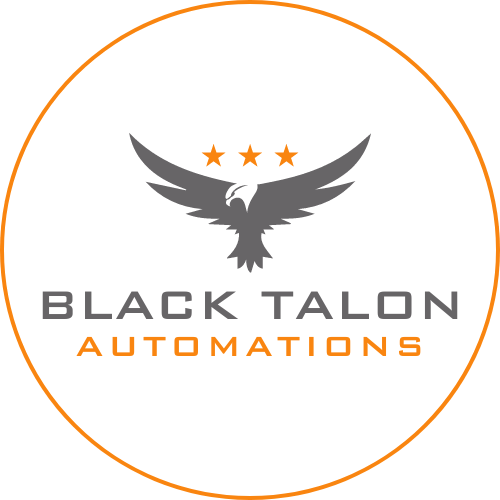In today’s fast-paced world, customer relationship management (CRM) software is key for businesses. The CRM market is set to hit $88.19 billion by 2024. It’s vital for companies to pick the right CRM that fits their needs and budget. This guide will walk you through choosing the best CRM for your business. It will help you make a smart choice that boosts your customer relationships and growth.
Key Takeaways
- The CRM market is expected to grow significantly, making it essential for businesses to invest in the right solution.
- Evaluating your business requirements and budget is crucial when selecting CRM software.
- Identifying key features, such as lead management, sales automation, and reporting capabilities, can help you find the best-fit CRM.
- Assessing vendor reputation, pricing models, and implementation costs is important for a successful CRM implementation.
- Crowley Media Group offers expertise in CRM selection and implementation to help you choose the right solution for your business.
Understanding CRM Software and Its Importance
Customer Relationship Management (CRM) software helps businesses manage all interactions with customers, leads, and suppliers. It tracks and stores customer data, finds new business opportunities, and boosts profitability. A good CRM solution offers many benefits that improve operations and customer relationships.
What is Customer Relationship Management Software?
CRM software is a platform that helps businesses manage customer interactions. It includes lead generation, sales, customer service, and support. It gives a full view of customer interactions, helping companies understand their audience better and offer personalized services.
Benefits of Implementing CRM Solutions
- Improved Customer Relationships: CRM systems help businesses build stronger, more meaningful connections with their customers. They provide a single source of truth for customer data and enable personalized communication.
- Increased Sales Processes: CRM software automates various sales tasks, such as lead tracking, pipeline management, and opportunity forecasting. This leads to more efficient and effective sales operations.
- Enhanced Analytics and Reporting: CRM solutions offer powerful data analytics and reporting capabilities. They enable businesses to make data-driven decisions, identify trends, and optimize their strategies.
- Improved Marketing Campaigns: CRM tools provide valuable customer insights for targeted and personalized marketing campaigns. This results in improved campaign effectiveness and higher return on investment.
- Reduced Operational Costs: By streamlining and automating various business processes, CRM software can help organizations cut down on administrative tasks and operational expenses. This leads to increased profitability.
Key Business Functions of CRM Systems
CRM software addresses a wide range of business needs, including CRM features evaluation and business needs assessment. Some key functions of CRM systems include:
- Lead and Contact Management
- Sales Opportunity and Pipeline Tracking
- Marketing Campaign Management
- Customer Service and Support
- Reporting and Analytics
- Collaboration and Workflow Automation
By using CRM software, businesses can streamline their operations, improve customer relationships, and drive sustainable growth.

Assessing Your Business Requirements and Budget
Starting the CRM selection process means understanding your business needs and budget. It’s key to know your goals and what you need from a CRM software. Think about your current challenges, what you want to achieve, and your budget.
Look at your budget early to avoid wasting time. Work with your team to decide on essential and nice-to-have features. This will help you find the best CRM vendors within your budget.
By carefully evaluating your needs and resources, you can choose the right CRM software. This approach ensures you make a choice that boosts your business operations and meets your goals.

Keep in mind, there’s no single CRM solution for everyone. The best choice depends on your industry, company size, and specific needs. Assessing your needs and budget helps you find the CRM software that fits your business best.
Essential Features to Look for in CRM Software
When looking at CRM software, it’s key to find features that match your business needs and goals. CRM tools have many capabilities, like managing contacts and leads, automating sales and marketing, and providing detailed reports. Knowing the must-have features helps in a smooth user adoption and makes your CRM investment worthwhile.
Contact and Lead Management Capabilities
Good contact management is the base of a great CRM system. Look for features that keep customer data organized, track interactions, and give a full view of your sales pipeline. Lead scoring and distribution help spot and grow top leads, making your sales smoother.
Sales and Marketing Automation Tools
CRM features that automate sales and marketing tasks can greatly improve efficiency. Sales forecasting, workflow automation, and marketing automation tools save time, letting your team focus on big ideas. Choose CRM solutions that work well with your current software.
Reporting and Analytics Functions
Strong reporting and analytics tools are vital for making smart decisions. CRM software with great dashboards and customizable reports offers deep insights into sales, customer behavior, and business operations. This helps spot areas for betterment and fine-tunes your CRM strategy.

When checking out CRM software, focus on features that meet your business needs and help with growth. Look for scalability, data safety, and easy-to-use interfaces for a smooth CRM experience for your team and customers.
Evaluating CRM Vendors and Pricing Models
Choosing the right CRM vendor means looking at different pricing and understanding costs. CRM prices can range from free to thousands a month. Most charge by user, per month. Remember to also think about costs for setup, training, and customizations.
Comparing Different Pricing Structures
Check out CRM vendors on sites like G2 or TrustRadius for pricing and reviews. Also, ask your network for CRM suggestions. Try demos and free trials to see which fits your team best.
Understanding Implementation Costs
Don’t forget about setup costs like moving data and integrating with your tools. How easy it is to set up and how well it fits with your systems matters a lot. It can make or break your CRM’s success.
Assessing Vendor Reputation and Support
Look at the vendor’s reputation, support quality, and how long they’ve been around. Check if they offer training, tech help, and updates. Good support is key for a smooth transition and long-term CRM success.
FAQ
What is the current market size and growth projection for CRM software?
What are the key benefits of implementing a CRM system?
How do I identify the right CRM for my business?
What are the essential CRM features I should consider?
How do CRM pricing and implementation costs vary?
Source Links
- https://www.getguru.com/reference/how-to-choose-crm-software
- https://www.businessnewsdaily.com/7838-choosing-crm-software.html
- https://www.salesforce.com/crm/best-crm/
- https://www.convergehub.com/blog/how-to-choose-the-right-crm-software-for-your-business
- https://www.salesforce.com/crm/what-is-crm/software/
- https://www.zendesk.com/blog/3-types-crm-everything-need-know/
- https://www.zendesk.com/blog/choose-best-crm-business-needs/
- https://www.reddepayments.com/post/how-to-choose-the-right-crm-for-your-business
- https://www.business.com/articles/features-to-look-for-in-crm/
- https://www.businessnewsdaily.com/10090-crm-software-features.html
- https://capsulecrm.com/blog/how-to-choose-a-crm-a-step-by-step-guide/
- https://www.erphub.com/blogs/post/how-to-choose-the-right-crm-for-your-business
- https://olive.app/blog/how-to-choose-the-right-crm-software-for-your-business/




